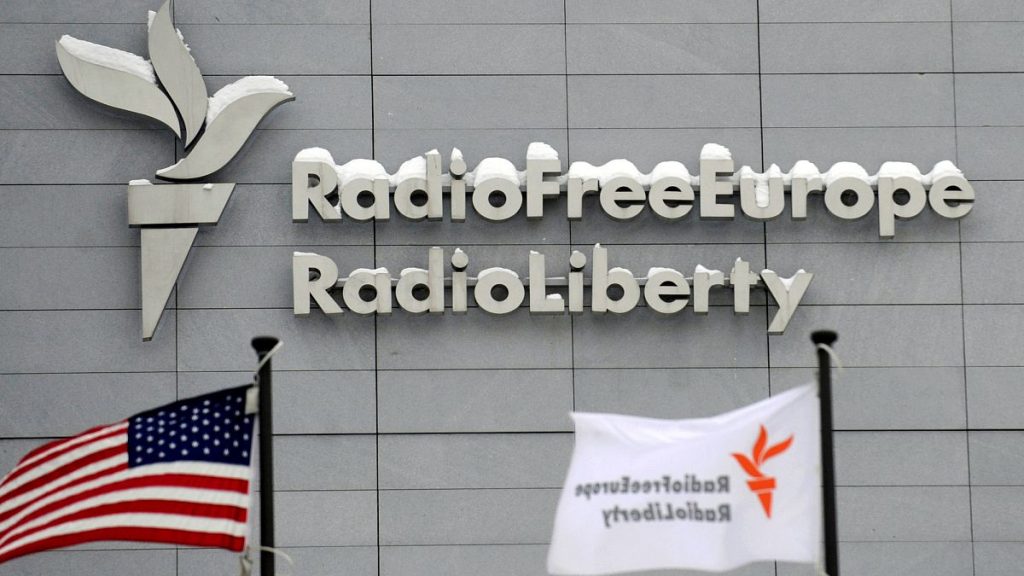A Ukrainian journalist previously imprisoned for over four years in occupied Crimea has been released following international advocacy efforts. Vladyslav Yesypenko, a journalist for Radio Free Europe/Radio Liberty (RFE/RL), was released after being detained by Russian authorities, facing serious charges that both he and many human rights organizations have described as fabricated. His release coincided with the release of an RFE/RL correspondent, indicating a coordinated effort by governments and international bodies to address media repression in the region.
| Article Subheadings |
|---|
| 1) Circumstances of Detention |
| 2) Charges and Legal Proceedings |
| 3) Human Rights Violations |
| 4) Responses from Advocacy Groups |
| 5) The State of Media Freedom in Crimea |
Circumstances of Detention
On , Vladyslav Yesypenko, a dual Russian-Ukrainian citizen and journalist for RFE/RL, was arrested in Crimea, a territory that was illegally annexed by Russia in 2014. His arrest occurred amidst a broader crackdown on dissent and independent journalism in the region. Yesypenko was reportedly detained while working on a project that aimed to highlight the experiences of Crimean residents living under Russian rule. This initiative underscores the crucial role of journalism in documenting social and political conditions, especially in conflict zones. His detention raised immediate concerns regarding press freedom in areas under Russian control and the implications for journalists operating within these territories.
Charges and Legal Proceedings
Yesypenko was officially charged with espionage for Ukraine, a claim he vehemently denied. The Russian-installed court in Crimea sentenced him to six years imprisonment in February 2022, a sentence later reduced to five years. The proceedings attracted significant criticism both domestically and internationally due to the lack of credible evidence. Rights organizations, including RFE/RL, argued that the charges resulted from his journalistic activities rather than any legitimate wrongdoing. Furthermore, Yesypenko faced additional accusations of possessing explosives, a charge that further compounded the severity of his situation. This charge was later acknowledged to be baseless when it was revealed that the grenade found in his vehicle bore no fingerprints linking him to the item.
Human Rights Violations
During his time in custody, Yesypenko reported experiencing severe mistreatment, including torture aimed at extracting a confession. He testified in court about being subjected to electric shocks during interrogations, a method commonly condemned by human rights advocates as a breach of international law and ethical standards. Following his release, RFE/RL’s chief executive, Stephen Capus, condemned the actions of the Russian authorities, stating,
“For more than four years, Vlad was arbitrarily punished for a crime he did not commit. He paid too high of a price for reporting the truth about what was taking place inside Russia-occupied Crimea.”
This situation exemplifies the dire implications of governmental repression on individuals exercising their freedoms and pursuing journalistic integrity.
Responses from Advocacy Groups
The actions taken by the U.S. and Ukrainian governments were vital in facilitating Yesypenko’s release. Following the imprisonment of another journalist, Ihar Karnei, in Belarus, diplomatic channels were engaged to address the injustices faced by journalists in the region. Capus expressed gratitude to the governments involved, emphasizing their roles in ensuring the unjust detention of Yesypenko was resolved. This highlights the importance of international advocacy in cases where journalists face persecution, illustrating how coordinated efforts can lead to tangible change. Support from human rights organizations has been crucial in amplifying Yesypenko’s plight, indicating that raising awareness on an international scale can influence the political landscape.
The State of Media Freedom in Crimea
The state of media freedom in Crimea has sharply deteriorated since its annexation by Russia. According to the Ukrainian human rights NGO ZMINA, as much as 88% of media outlets that were operational prior to 2014 have ceased to exist by 2015. This significant decline in media presence has created an environment rife with censorship and limited access to independent reporting. As authorities intensify their crackdown on dissent, numerous journalists have faced similar fates as Yesypenko, being charged based on dubious accusations. The international community has called for greater recognition of the plight faced by journalists in such regions, stressing the need for protective measures and robust dialogue on the importance of media independence.
| No. | Key Points |
|---|---|
| 1 | Vladyslav Yesypenko was imprisoned for over four years on fabricated charges. |
| 2 | Yesypenko reported being tortured to extract a confession, violating human rights standards. |
| 3 | His release was influenced by diplomatic efforts from the U.S. and Ukraine. |
| 4 | Media freedom in Crimea has significantly declined since the annexation in 2014. |
| 5 | There is an urgent need for international advocacy to protect journalists in repressive environments. |
Summary
The case of Vladyslav Yesypenko epitomizes the extensive challenges faced by journalists operating under oppressive regimes. His release serves not only as a personal victory but also highlights the broader struggle for media freedom in Crimea and beyond. The international attention directed at his situation underscores the need for continued advocacy for journalists who risk their lives to report the truth. As the political landscape evolves in Eastern Europe, it is crucial that the rights of journalists are upheld, ensuring that their voices can continue to inform and educate the public without fear of persecution.
Frequently Asked Questions
Question: What charges were brought against Vladyslav Yesypenko?
Yesypenko faced charges of espionage for Ukraine and possession of explosives, both of which he denied as fabricated accusations.
Question: What human rights violations did Yesypenko report during his detention?
He reported being subjected to torture, including electric shocks, intended to coerce him into admitting guilt for crimes he did not commit.
Question: Why is international advocacy important in cases like Yesypenko’s?
International advocacy can help raise awareness, mobilize diplomatic efforts, and apply pressure on repressive regimes to release unjustly detained journalists.


